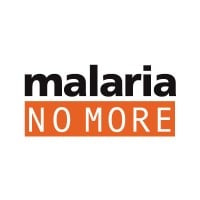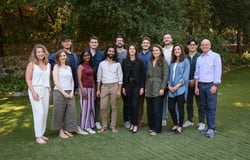CDAH Platform Overview - The CDAH will be a cloud-native, open-source “operating system” for integrated climate and health intelligence, built on five pillars:
- AI R&D environment: Ingests multi-modal climate, environmental, epidemiological and socio-demographic data into a unified data lake & feature store; supports Kubeflow/PyTorch/TensorFlow pipelines with MLflow registry, automated benchmarking, architecture search, transfer learning and uncertainty-aware modeling.
- Digital tool marketplace & public goods registry: User-facing portal for dashboards, mobile apps and alerting platforms; structured backend registry of pre-trained model packages, microservices, ETL scripts, governance adapters, metadata and version history.
- Systems integration & deployment layer: Middleware adapters and Kafka messaging to plug AI services into DHIS2, HMIS, IDSR and similar platforms; Terraform/Ansible IaC, identity management, end-to-end encryption and compliance with data-governance standards.
- Training environment: Web portal and virtual bootcamp infrastructure hosting open-access modules, instructor-led sessions, hands-on Jupyter labs, code templates and certification tracks on climate-health AI workflows and interoperability.
- Real-world evaluation sandbox: Controlled simulation environment replicating public-health workflows, climate variability and institutional constraints; structured feedback loops for piloting, validating and refining tools prior to full-scale rollout.
What You’ll Do
- Own the AI/ML roadmap: Drive end-to-end design, training, and deployment of models that fuse climate, environmental and health data to generate predictive analytics for early warning and strategic decision support across diverse climate-driven health challenges– leveraging transfer learning, uncertainty quantification, spatiotemporal neural architectures, and domain adaptation.
- Package and validate model services: Containerize inference microservices, write unit/integration tests, and manage model-serving APIs.
- Collaborate on CI/CD: Work with the Systems Architect to integrate models into the shared CI/CD pipeline; focus on model pipeline handoff and deployment validation.
- Automated model testing and monitoring: Develop model unit tests, integration tests, and continuous drift/bias monitoring.
- Integrate with national information systems: Develop and maintain middleware adapters to seamlessly plug AI services into DHIS2, HMIS, IDSR, and/ or other existing health information platforms– adhering to data-governance, security, and interoperability standards. Lead the model-serving middleware, while the Systems Architect leads the API Gateway.
- Collaborate & consult: Partner with IMACS Data Scientist, Systems Architect, and in-country stakeholders to translate analytics into decision-support tools, technical roadmaps, and clear implementation guides. Serve as the primary AI/ML consultant for government and NGO clients.
- Accelerate capacity building: Design and deliver modular training assets– Jupyter notebooks, code labs, technical playbooks– and co-facilitate virtual bootcamps, “office hours,” and hands-on mentoring for public health actors.
- Innovate continuously: Lead research sprints in our R&D environment: evaluate emerging open-source AI frameworks, pilot agentic AI systems, and iterate on model performance using real-world climate and epidemiological datasets.
What We’re Looking For
- Deep technical expertise:10+ years in AI/ML engineering, with a strong track record in deep learning, NLP, computer vision, or generative AI at scale.
- Foundation Model mastery: Hands-on experience building, fine-tuning, and benchmarking large-scale transformer and multi-modal architectures (e.g., GPT, LLaMA, stable diffusion variants).
- MLOps & Cloud proficiency:Expertise in Docker, Kubernetes, CI/CD (GitOps), and GPU-accelerated training on AWS, Azure, or GCP.
- API & microservices: Proven ability to design, implement, and secure RESTful APIs and microservice ecosystems.
- Consulting acumen: Exceptional stakeholder management, technical storytelling, and client-facing presentation skills– ideally honed at a top-tier consulting firm or tech organization.
- Autonomous delivery:Demonstratedcapacity to deliver complex projects end-to-end, navigate ambiguity, and deliver production-ready solutions with minimal oversight.
Preferred Qualifications
- Prior engagement in global health, One Health, or climate-health use cases.
- Familiarity with data governance frameworks (e.g., GDPR, HIPAA) and cybersecurity best practices.
- History of designing and delivering technical training or bootcamps.
- Contributions to open-source digital public goods or curated marketplaces/registries.
Why You’ll Love This Role
- High-impact mission: Your work will directly strengthen early warning systems and resilience in climate-vulnerable regions.
- Technical leadership: Shape the AI/ML strategy for a pioneering global platform with full ownership of critical deliverables.
- Innovation-friendlyenvironment: Experiment with state-of-the-art generative and agentic AI in a cloud-native R&D playground.
- Global collaboration: Engage a diverse network of public-health experts, policymakers, and open-source communities.
Top Skills

What We Do
Malaria No More (MNM) envisions a world where no one dies of a mosquito bite. More than a decade into our mission, our work has contributed to historic progress toward this goal. Now, we’re mobilizing the political commitment, funding, and innovation required to achieve what would be one of the greatest humanitarian accomplishments—ending malaria within our generation.
MNM is a global organization with offices in Washington, D.C. and Nairobi, and affiliates in the United Kingdom and Japan.








